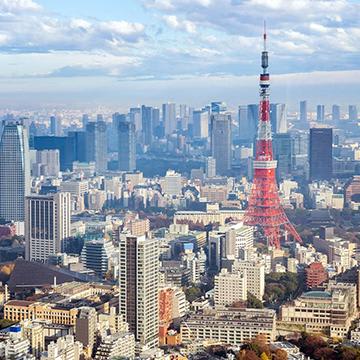True One-Stop Service For Business In Japan

- 10+ Bilingual Experts
- 800+ Companies Thrived
- Seamless / High-Quality One-Stop Service
Special Market Conditions:
Japan is known for its unique market conditions, different from Western countries. It’s common for popular products in Western countries to struggle in Japan. Many foreign-affiliated companies have experienced setbacks in adapting their store operations to Japan’s unique culture, which has a diverse demand for products.
For example, Forever21, a major fashion brand, entered the Japanese market in 2009. Initially, it gained attention and popularity with huge lines forming before the first store opened in Harajuku-Tokyo, and it quickly became a popular store. It continued to gain momentum by opening stores in shopping malls around the country, but it eventually faced fierce competition from other foreign fashion brands like H&M and ZARA, as well as local Japanese brands like UNIQLO and GU. With quick trends and intense competition, foreign brands must be able to respond to changes promptly or will have no choice but to withdraw from the Japanese market. Forever 21 re-launched in Japan in early 2023 under the management of a Japanese apparel company.
Offering Products Accepted by the Japanese:
When expanding into Japan, it’s crucial for overseas restaurants, cafes, and fast-food chains to consider offering products that resonate with the Japanese market. While some products from abroad can find success in Japan, others may face challenges.
Take the example of Krispy Kreme Doughnuts, which entered Japan in 2006 and initially expanded to about 65 stores. However, after 10 years, the number of stores dropped to around 45. This decline was due to the rapid rise and fall of trends in Japan, as well as competition from the convenience store industry, which entered the doughnut business. Moreover, the taste of the doughnuts was considered “too sweet” for the Japanese palate. In response, Krispy Kreme adjusted its strategy by developing products that could be accepted in Japan, such as by moderating the sweetness, in order to expand its business.
Companies like McDonald’s and Starbucks, which have achieved long-term success in Japan, have been accepted by Japanese society by continuously offering products and services that cater to the unique preferences of Japanese consumers.
These considerations apply not only to restaurants but also to other product and service offerings. Flexibility is crucial when attempting to develop a business in Japan.
Author
Related services
Contact us
Complete this form and an RSM Shiodome Partners representative will be in touch.





